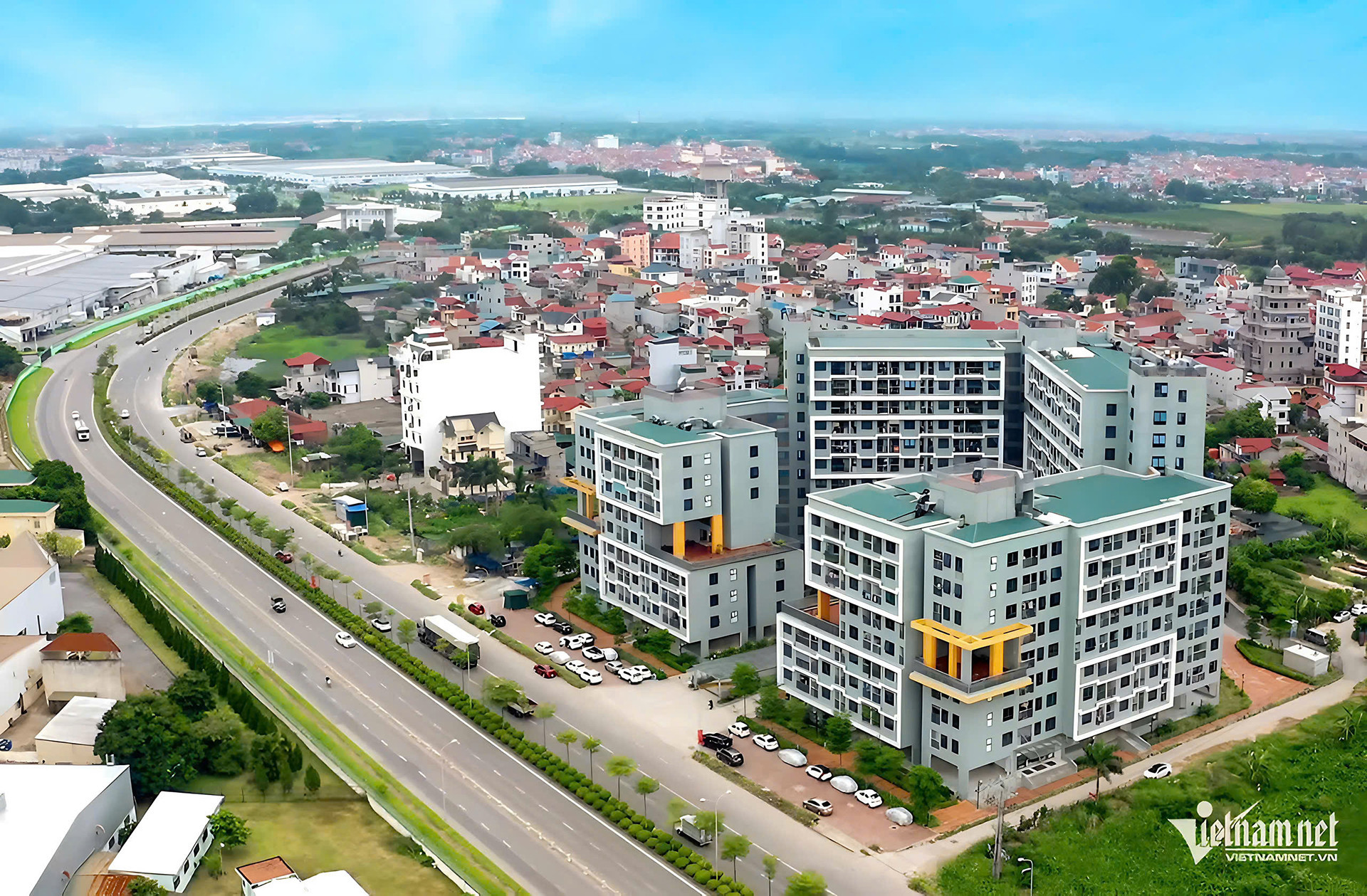
The information was released by Ha Quang Hung, Deputy Director of the Housing and Real Estate Market Management Department under the Ministry of Construction (MOC), at the seminar “Solutions to Accelerate Social Housing Development” several days ago.
This is part of the National Assembly’s Resolution on piloting policies for social housing development.
According to Hung, after administrative unit reorganization, the distance from one end of a province to the other end may significantly increase. Many officials and workers must travel 100-200 kilometers from their residence to their workplace. Meanwhile, some rural workers in urban areas have to work far from home and they have a need to buy or lease-purchase social housing, but do not meet current conditions.
After provincial mergers, many people, who previously were eligible for purchasing social housing would no longer be, though their actual needs remain unchanged.
“The draft proposes a solution for cases where residents already own a home. Depending on the distance and travel time to their workplace, provincial People’s Committees will set specific conditions for purchasing social housing. The distance could be 15-20 kilometers or 30-50 kilometers, depending on local regulations,” Hung said.
He said that a National Housing Fund, a non-profit financial fund operating outside the state budget, and not for profit, will be established at both central and local levels. The fund will be financed through budget allocations, voluntary contributions from organizations and individuals, and revenue from social housing sales.
“The fund aims to invest in constructing and creating a social housing stock for rent, providing more people with access to this type of housing,” Hung explained.
Regarding the development of trade union housing complexes in Hanoi and other localities, Le Van Nghia, Head of the Trade Union Complex Project Management Board (Vietnam General Confederation of Labor), said the Confederation has sent a request to the Hanoi People’s Committee to allocate land for building housing for workers.
“Under the plan, a trade union complex in Hanoi will be built from 2026-2030. In Bac Ninh and Bac Giang, the Confederation plans to start the construction in the fourth quarter 2025, with about 1,100 apartments. Rental prices are expected to range from VND1 to 3 million a month, depending on the apartment’s size and location,” Nghia stated.
Scam warning
Nguyen Van Son, a worker at Hanoi Urban Environment Company Limited (Urenco), said many workers are unsure where to register for social housing, and have even been scammed when buying through brokers. Workers want clear guidance to purchase directly from developers.
Pham Cong Doan, Deputy General Director of Arita JSC, a developer of several social housing projects, said the process of registering to buy social housing purchases is strict with many criteria, as this type of housing is intended for certain groups of beneficiaries. Workers should contact developers or project management boards directly for guidance and verification of documents by competent authorities.
“People should absolutely avoid buying through intermediaries or brokers to prevent risks and ensure their legal rights,” he said.
Regarding the procedures, he said one of the biggest ‘bottlenecks’ is the certification of income for freelancers.
“Current regulations require that the income of either spouse must be below 15 million dong a month to qualify for social housing. However, income certification depends on local authorities, i.e., the commune or ward People’s Committee where the individual resides. For freelance workers, this is nearly impossible, as local authorities lack the means to verify income,” Doan said.
He proposed that management agencies devise solutions to address this issue to be sure that social housing can reach the right beneficiaries.
Under the new regulation, after August 1, 2024, once the full payment for a social housing unit is made and the ownership certificate (red book) is issued, selling the unit after a 5-year period will not require land use fees but will be subject to income tax and other fees as per regulations.
Previously, transfer of social housing required payment equal to 50 percent of the land use fee, equivalent to about VND120-200 million per unit.
In Hanoi, several social housing projects that have been in use for over 5 years are eligible for transfer, including Dai Kim Building, Rice City Linh Dam, and 987 Tam Trinh Social Housing.
Hong Khanh